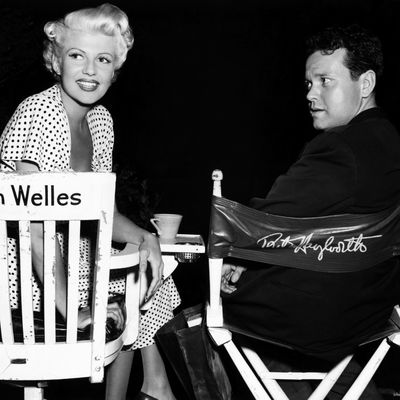
On a recent weekday afternoon, while out getting a coffee, I bumped into a friend in Soho. She’s a filmmaker with many short-film and documentary directorial credits under her belt, but, she lamented, still mostly gets asked to produce, rather than direct, film projects. She believes this is because of a sexist system that favors men in the film industry — not a particularly radical idea. As if from her mouth to God’s ears, at that exact moment a very powerful man of Hollywood emerged from the nearest building.
This man, whom we’ll call “Mr. Hollywood,” is a multi-hyphenate; he writes, stars in, produces, and directs films. He has multiple millions of dollars and a lot of influence.
“Let’s go ask Mr. Hollywood why he doesn’t hire more women,” said my friend, and without waiting for me to agree, she went over and introduced herself. She professed her fandom and then asked, “So, I’m just wondering, why don’t you hire more women to direct films?”
He looked surprised but not unfamiliar with this line of questioning and said, “Well, I’m starting to! My daughter is a filmmaker and I’m trying to help her.”
My friend repeated her question. “It’s not that easy!” he said. She inquired why not. “You can’t just hire people, there is so much risk involved, they need a track record!” She pointed out that it’s hard to get a track record when no one will hire you. “You have to make a reel,” he explained, as if she were a freshman at NYU and not a grown woman in her late 30s. “You have to work on side projects. Every person in this industry has blackmailed their way into it in some way.”
Putting aside the skeevy connotations of the word blackmail, my friend explained that she has a reel. She spends her weekends and all of her money on side projects. And then she asked a third time: “But why don’t you hire more women?”
He had no answer. He simply said, “It’s changing. Be patient. Everybody knows it’s terrible. Everybody thinks it needs to change.”
She inquired a fourth time: “That’s great. So why don’t you hire more women?”
He shook his head, told us once more, “We all know it’s terrible,” and left to join another man in a black Town Car. As he walked away, my friend yelled, “Good luck to your daughter!”
We stayed on the corner. I asked her what she thought she had accomplished, other than making me very entertained. “I just wanted him to sit with that question. Even for the next few hours. I want him to think about that the next time he talks to his daughter. I want him to tell that story to one other person, even if it annoyed him.”
To me, a silent bystander in this interaction, he didn’t seem annoyed. He appeared weary, helpless, resigned. He seemed to genuinely mean it when he suggested women should wait, because things are changing. But he did not seem like he would do anything to help.
Certainly, he’s not obligated to. But it felt very good to watch my friend confront him and it inspired me to find the courage to do the same. What do we have to lose? If nothing else, it will make the waiting more entertaining.


